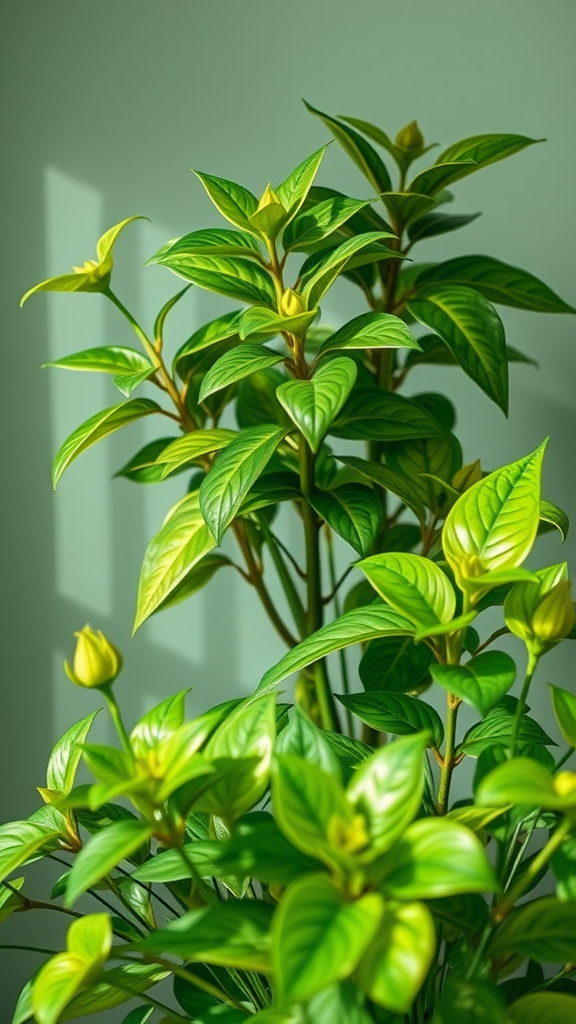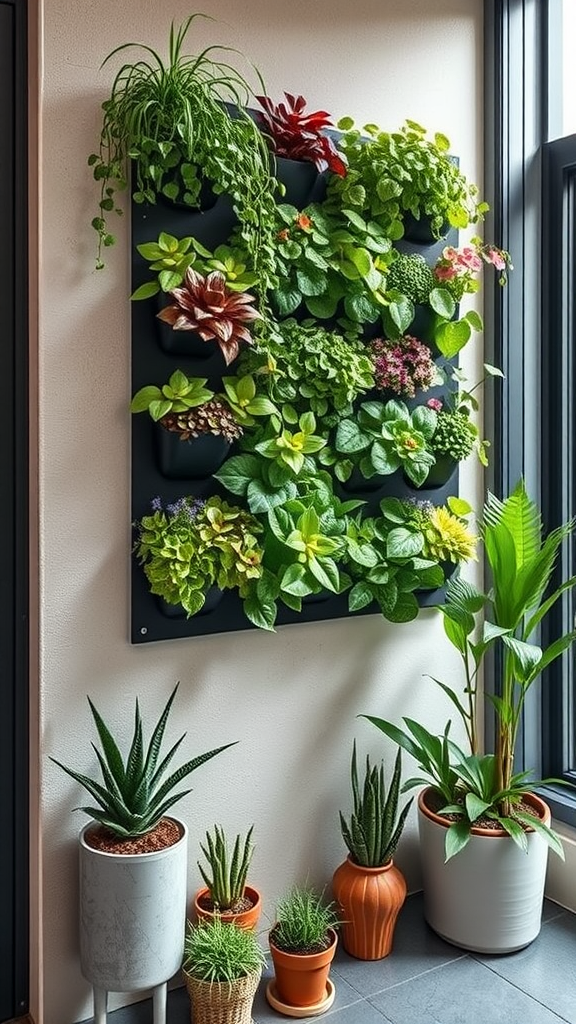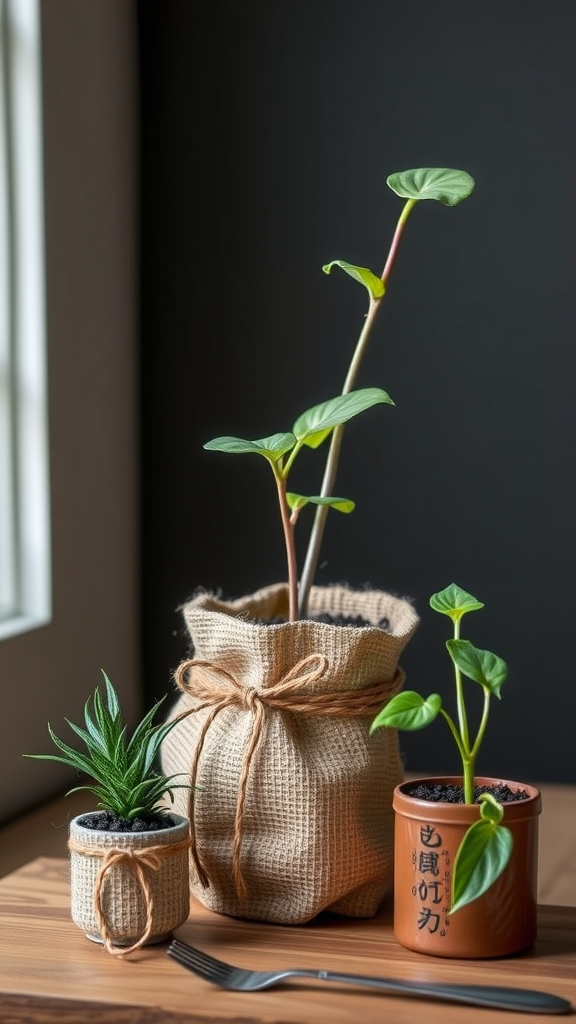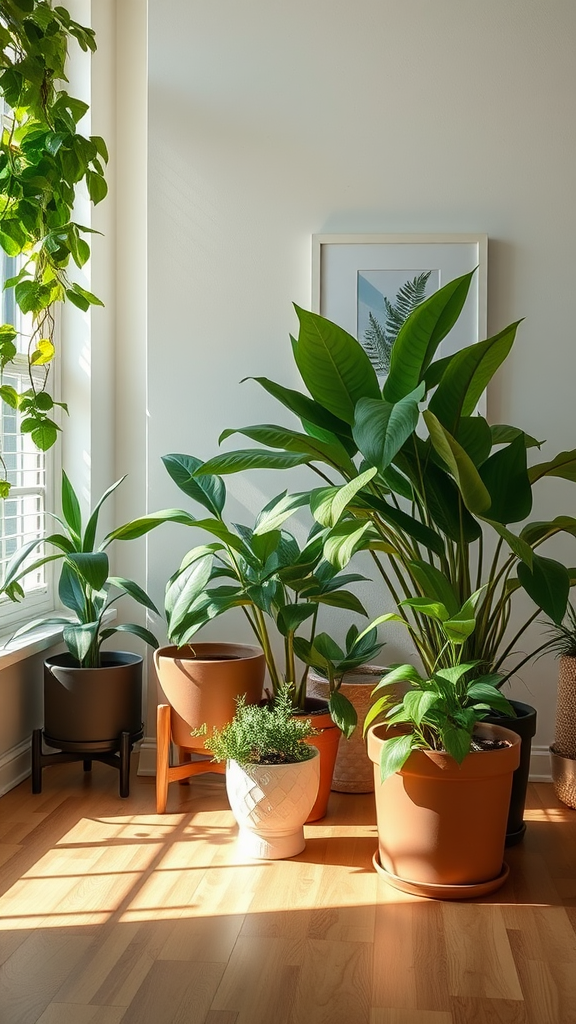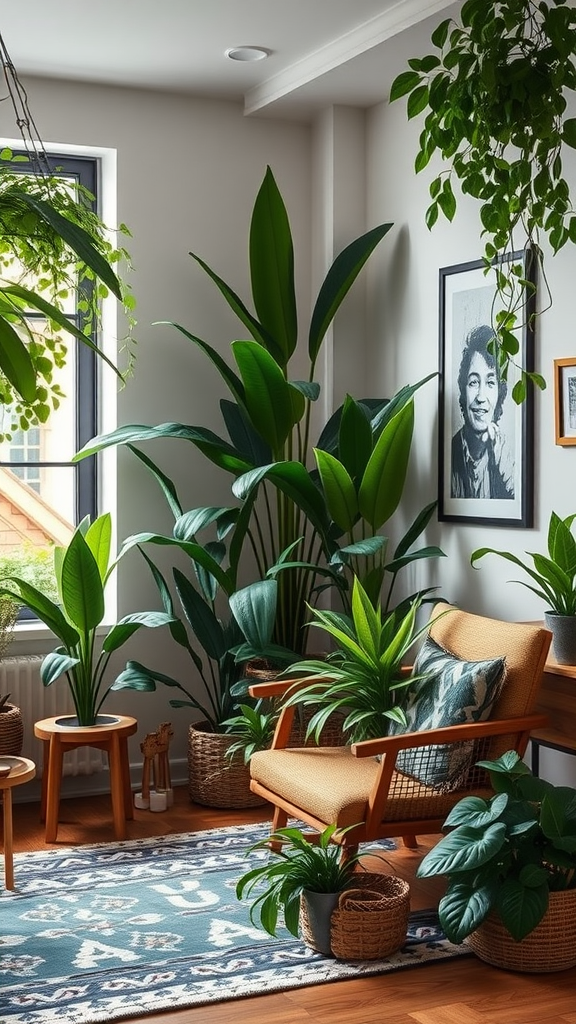The Impact of Indoor Plants on Mental Health and Stress Relief
Indoor plants have become increasingly popular for good reason. Not only do they beautify a space, but they also provide several mental health benefits. When you surround yourself with greenery, you can create a serene environment that helps to lower stress levels and improve your overall mood. Here are some key insights into how indoor plants can impact mental health and provide stress relief.
The Connection Between Nature and Well-being
Modern life can be hectic and overwhelming. Simply looking at plants can help reduce stress and anxiety. Studies show that being in nature or even viewing nature scenes can have a calming effect. When you bring plants into your indoor space, you replicate some of that calming experience. This connection with nature is essential for emotional well-being and promotes better mental health.
How Indoor Plants Help Reduce Stress
Indoor plants not only purify the air but also create a vibe that promotes relaxation. Here’s how they can help reduce stress:
- Improved Air Quality: Plants absorb toxins and release oxygen, enhancing the air quality in your home or office. Clean air can help you feel more focused and less stressed.
- Enhanced Mood: The presence of plants can elevate your mood. Studies suggest that interacting with greenery can boost serotonin levels, helping you feel happier.
- Lower Blood Pressure: Being around plants can lower your blood pressure. This creates a feeling of tranquility that can combat everyday stress.
- Creative Inspiration: Indoor greenery can ignite creativity and inspire new ideas, which is especially beneficial in work or study environments.
- Mindfulness Opportunities: Caring for plants encourages mindfulness. Focusing on watering or pruning can act as a form of meditation, helping you to de-stress.
Best Indoor Plants for Boosting Mental Health
Choosing the right plants can be crucial for maximizing mental health benefits. Here are seven plants you might consider adding to your space:
- Spider Plant: This hardy plant is known for its ability to purify air and is easy to care for. Its long, arching leaves provide a soothing aesthetic.
- Pothos: Pothos plants thrive in low light and require minimal maintenance. Their beautiful trailing vines can bring a sense of calm to any space.
- Peace Lily: Known for its beautiful white flowers, the peace lily also helps improve indoor air quality while adding elegance to your home.
- Lavender: Aside from its delightful scent, lavender is known for its calming properties. It can help reduce anxiety and promote restful sleep.
- Snake Plant: This plant not only cleans the air but is also known for its ability to convert CO2 into oxygen at night, promoting better sleep.
- Chrysanthemum: Often called “mums,” these flowers are vibrant and can uplift the energy in a room while also improving air quality.
- Basil: Not only useful in cooking, basil has a refreshing scent that can elevate your mood and provide a sense of well-being.
Implementing Plants Into Your Space
Plants into your home or work area doesn’t have to be complicated. Here are some tips to get you started:
- Choose plants based on your lifestyle. If you’re often away from home, opt for low-maintenance options.
- Place plants in locations where you spend the most time. This could be your living room, bedroom, or even at your desk.
- Mix different plants for variety in color and texture. This can create a more stimulating environment.
- Don’t forget about herbs! They not only enhance your meals but also contribute to improving your mental state.
By bringing indoor plants into your space, you can create a sanctuary that promotes mental health and reduces stress. As you cultivate both greenery and mindfulness in your life, you may find more balance and peace in an otherwise chaotic world. Embrace the natural benefits plants provide and enjoy the mental clarity and emotional well-being that can follow.
The Science Behind Plant Care and Its Therapeutic Benefits
Taking care of plants offers a remarkable set of therapeutic benefits that go beyond just beautifying your home. Engaging in plant care can improve your overall well-being by enhancing your mental health, reducing stress levels, and promoting a sense of accomplishment. Let’s explore how nurturing these green companions can contribute to a more positive mindset and emotional balance.
Understanding the Connection Between Plant Care and Well-Being
When you choose to care for plants, you create an opportunity for mindfulness. Tending to their needs—such as watering, pruning, and repotting—requires your attention and focus. This practice pulls you away from daily stressors, promoting relaxation and presence in the moment. Research shows that interacting with plants can lower levels of cortisol, a hormone closely linked to stress.
Benefits of Plant Care on Mental Health
Think about the soothing sensation of connecting with nature through plant care. Here are some key benefits:
- Reduces Anxiety: Spending time with plants can significantly lower feelings of anxiety. Engaging with nature helps calm the mind and fosters a sense of tranquility.
- Boosts Mood: The act of nurturing plants can increase dopamine levels. Feeling accomplished when a plant thrives can elevate your mood and improve your emotional state.
- Encourages Routine: Regularly tending to plants adds structure to your day, which can be essential for maintaining mental health, especially during challenging times.
- Fosters Connection: Caring for plants can create a deeper connection to the environment, allowing you to feel more grounded and connected to the world around you.
Engaging with Plants: A Therapeutic Journey
Plant care into your life doesn’t have to be a daunting task. It can be a joyful and therapeutic journey filled with discovery. Here are various ways to enhance this experience:
Create a Plant Nurturing Routine
Establishing a routine helps build a bond with your plants. Schedule specific days for watering, fertilizing, or simply observing their growth. This will not only help you remember plant care but also create a moment for self-care.
Explore Plant Varieties
Experimenting with different plant species can be enjoyable. Each plant has unique needs and characteristics, giving you the chance to learn and grow as you develop your gardening skills. Consider starting with easy-to-care-for varieties like:
- Spider Plant
- Snake Plant
- Pothos
Join a Community
Being part of a plant care community can enrich your experience. Connect with others through online forums or local gardening groups where you can share tips, exchange plants, and celebrate each other’s successes. This social interaction can further boost your mental health.
Scientific Insights into Plant Care Benefits
Several studies have backed the notion that plant care is beneficial for mental health. A 2015 study showed that people who gardened reported lower levels of depression and higher feelings of well-being. Furthermore, a study from 2016 found that horticultural therapy can alleviate symptoms in patients with anxiety and depression.
Plants and Their Psychological Impact
The presence of plants in our living environment also plays a significant role in enhancing our mood. Plants improve air quality, which can affect our physical well-being, subsequently leading to better mental health. By having greenery around, you can create a refreshing space that nurtures your mind.
Choosing the Right Plants for Your Space
Selecting plants that resonate with you can make a difference in your journey. Some suggestions include:
- Peace Lily: Known for its air-purifying properties and beautiful blooms.
- Aloe Vera: Low maintenance and offers soothing benefits for skin.
- Lavender: Not only visually pleasing but also renowned for its calming scent.
By introducing plants into your life and making a commitment to their care, you are not just cultivating greenery; you are nurturing your own mental health and well-being. The simple act of planting seeds of growth can lead to a flourishing mind, creating a refuge of balance amidst life’s chaos.
Conclusion
As you can see, incorporating plants into your indoor space can significantly enhance your mental health and reduce stress levels. Research has highlighted the soothing effects of greenery, proving that the presence of plants can foster a serene environment that combats anxiety and promotes relaxation. Surrounded by nature, even indoors, encourages a sense of calmness that many people find hard to achieve in today’s fast-paced world.
Caring for plants also serves as a therapeutic activity. It not only gives you a sense of purpose but also nurtures the mind. Engaging with your plants—watering them, pruning their leaves, or simply observing their growth—can be a mindful practice that allows you to live in the moment. This connection with nature fosters resilience against stress and anxiety, providing a powerful antidote to the emotional challenges in our lives.
As you explore the different plants that can uplift your spirits, remember that each interaction with your green companions counts. Whether you choose an easy-to-care-for succulent or a fragrant lavender, the choice is up to you. A beautiful array of indoor plants not only brightens your space but also acts as a daily reminder of tranquility. Embrace this plant-filled journey, and allow these living beings to support your mental well-being and cultivate a healthier, stress-free life. By welcoming nature into your home, you invite peace, joy, and balance into your daily routine, enriching your overall quality of life.

